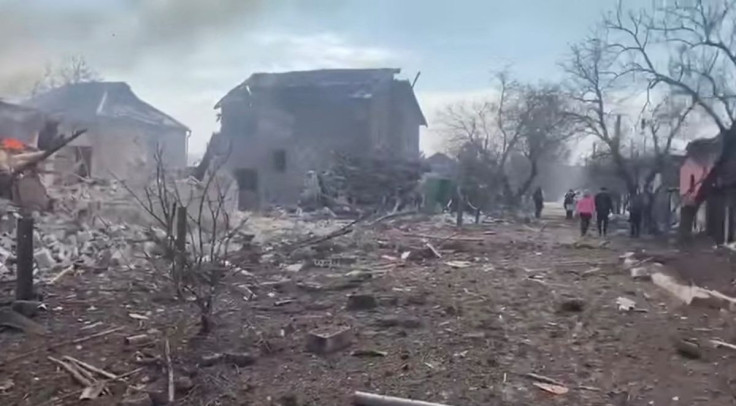Ukraine Hopes 'Humanitarian Corridor' From Mariupol Will Open

Ukraine hopes a "humanitarian corridor" will be opened successfully for civilians to leave the besieged southern port city of Mariupol on Friday, Deputy Prime Minister Iryna Vereshchuk said.
Residents have been cowering under fire, and without power or water, in the strategic ally important city of over 400,000 people for more than a week and attempts to arrange a local ceasefire and safe passage out have failed repeatedly.
Three people were killed in an attack on a hospital in Mariupol this week, Ukrainian officials said.
"We hope it (the corridor) will work today," Vereshchuk said in a televised statement in which she said she hoped several other humanitarian corridors would also be opened by Russian forces who invaded Ukraine on Feb. 24.
A convoy of about 225 people in 50 cars and a bus set out from the city of Enerhodar, heading to nearby Zaporizhzhia in eastern Ukraine, Zaporizhzhia's regional governor said.
"We are waiting in Zaporizhzhia," Governor Oleksandr Starukh said on the Telegram messaging app.
Russia's defence ministry said it would open humanitarian corridors from Kyiv, Sumy, Kharkiv, Mariupol and Chernihiv.
President Volodymyr Zelenskiy said that not a single civilian had been able to leave Mariupol on Thursday although Ukrainian authorities had managed to evacuate almost 40,000 people from five other cities.
He blamed Russian shelling for the failure of the evacuation attempt from Mariupol.
Russia has blamed Ukraine for the collapse of humanitarian corridors and denies targeting civilians. Moscow calls its actions in Ukraine a "special operation" to disarm Ukraine and unseat leaders it calls neo-Nazis.
(Additonal reporting by Natallia Zinets and Max Hunder, Editing by Timothy Heritage)
© Copyright Thomson Reuters {{Year}}. All rights reserved.





















